Declaring war on anxiety…
Herman Chavez launched a tactic called “The Mental Game of Auditioning” – aimed at empowering actors and relieving that self-destructive fear of auditioning.
Through a strategy that targets an actor’s psyche, the sides and the business of entertainment, Herman Chavez builds up an actor’s mental arsenal so they “win” at every audition, by performing at the top of their game, in every environment or circumstance.
Testimonials abound about Herman Chavez’s Mental Game of Auditioning, yet NYCastings took an interest because our own Top Booker of 2009, Lauren Francesca, cited this source as her secret weapon.
From the creator of this artful approach, Herman Chavez, here are 13 ways in which The Mental Game of Auditioning can help you take your acting career up a level…
Insights from Herman Chavez
I. LAYING PLANS – How “The Mental Game of Auditioning” idea started:
![]() No one wants to get up in the morning and give a crappy audition. And one day it dawned on me that when I was younger I used to box and was never afraid to step into a ring against someone ready to chop my head off. So, why am I afraid of someone who looks like a librarian? There was something there that I wasn’t hooking into. It wasn’t the scene. It was something else. So, I started applying all this sports psychology to the auditions and came to the conclusion that, just like a fighter, the most important part of the audition process is the walk from the locker to the ring. If their mindset isn’t where it is supposed to be, then the three months of training went out the window.
No one wants to get up in the morning and give a crappy audition. And one day it dawned on me that when I was younger I used to box and was never afraid to step into a ring against someone ready to chop my head off. So, why am I afraid of someone who looks like a librarian? There was something there that I wasn’t hooking into. It wasn’t the scene. It was something else. So, I started applying all this sports psychology to the auditions and came to the conclusion that, just like a fighter, the most important part of the audition process is the walk from the locker to the ring. If their mindset isn’t where it is supposed to be, then the three months of training went out the window.
Then, a casting director came into my life, named Margaret Burns, and taught me how to tackle the scene. And, my biggest hero is Bruce Lee and I drew a lot from him too. From this combination, I came to the conclusion that auditions are a street fight and scene study is sports boxing. In class, you have a referee, there are rules, it’s a sport. But the auditions are visceral and alive. It’s now. That’s why you need something that is systematic, pragmatic, simple and right to the point.
In my opinion, auditioning is 90% mental and 10% technical. There are so many talented actors out there and the mental gets in their way.
II. WAGING WAR – Identifying the Enemy:
The biggest cause of fear is the desperation of wanting to book the job.
Basically actors need to clarify that acting is what they do, not who they are. Many actors link their identity to the success and that is a big NO, NO.
III. THE PLAN OF ATTACK – What to shoot for:
Unfortunately, a lot of acting teachers say, “Don’t think about it. Just go in there and knock them dead.” That is misinformation. When it comes down to it, what an actor really needs to do is not self-abandon themselves. To be true to their interpretation.
I tell my actors to say, “Always be relaxed, both physically and mentally, totally engaged with my reader, listening to everything he or she says to me, executing my interpretation fully and freely.” That’s what it always comes down to. The first take is always your interpretation, so it’s not about knocking them dead.
IV. TACTICAL POSITIONING – How to always look good:
 At the end of the day, it comes down to two main things for a casting director: #1 is that the main buyer continues to circulate business into the office so the casting director can continue to get work.
At the end of the day, it comes down to two main things for a casting director: #1 is that the main buyer continues to circulate business into the office so the casting director can continue to get work.
#2 is that everyone who comes in makes the casting director look good by giving a fully committed interpretation of the scene. If 8 actors come in, and the producers says, “where did you get all these actors from? They are all wonderful,” then the casting director looks good and is happy.
Of course, when they pick #8, the other 7 think they sucked because they didn’t get cast but they actually won because now the casting director keeps them in their circle of trust.
It’s about going in there, consistently, and putting the casting director at ease. That’s where actors need to focus their thoughts, not on worrying if their agent is going to be mad if they don’t book or any other pressures. You have to approach it like an athlete and have that tunnel vision. A pro is basically someone who doesn’t buy into labels or mystique. The go in, see it for what it is and don’t believe the hype. They do not worry if it is Warner Brothers that they are going into.
V. ENERGY – Building a positive foundation:
When I work with actors, there are three columns I address. The main column is what I call your mental makeup, the individual mental luggage. A lot of that has to do with childhood and parents. The second column is scene work and the third is the business (agents, casting directors, etc). But everything starts with the first column because you are never going to approach an agent if your mindset isn’t right. You are never going to have a confident audition or even make an appointment if your mindset is not right.
VI. ILLUSION AND REALITY – Why actors need a reality check:
Acting is the only business where you do not get an instant response of how bad an auditioner you are. If you are a comedian on stage in New York City, in a minute and a half you are going to know if you suck or not. If you are a boxer, you will step into the ring and know within 40 seconds if you have what it takes to make it. But this business can be very deceptive. You can get delusional, the years start piling up and its easy for you to say, It’s not me. It’s the casting director.
VII. ENGAGING THE FORCE – It takes an effort:
There is a book called Outliers: The Story of Success, by Malcolm Gladwell, that talks about how many hours it takes to master a skill. I have been with my casting director for ten years. When I am in class and show actors how to tackle a scene, they want to be able to it that quickly too. But they have to put in the time. Many actors do not have an ambition to be good. They have an ambition to be famous, to make money, to have a lot of people know who they are. But they do not have an ambition to be good and you have to take huge responsibility for your product.
VIII. VARIATION IN TACTICS – How Herman works with each actor:
Every actor has a folder and what we discuss stays in that room. I approach each actor the way I approach myself. I went to a therapist, who was an actor, and would speak about my blocks and my mental stuff with my auditions. I take from all my years and experiences. There are questions I ask the actor. I pinpoint where the weak muscles are and prescribe things that have helped me whether it is books, documentaries, shows, etc.
Actors have sports psychologists, a strength coach, conditioners, etc. All an actor has is a teacher that works with them on scene work. It’s like going into war with a slingshot. I honestly feel that is the one two combination I have of sports psychology and how to tackle the scene, works.
IX. MOVING THE FORCE – Getting into top condition:
I recommend that each actor works with me for eight months and eight months isn’t even a long time. When you go to the gym and hire a personal trainer, the first month your body is saying, Excuse me? We are going to what? The second month your body is saying, Ok, so this is a new norm for us. And by the third month your body knows that this is the way it is going to be from now on. So, eight months is nothing. And, normally when we get to the sixth month we test it to make sure it is working. Depending on the actor’s type we target a casting director at one of those meet and greets. They get the scene the night before, we prep it and then test it. You’ve got to step in and fight.
X. TERRAIN – Understanding how the environment affects you:
When someone goes into a room and gets stiff, or one-dimensional, it could be something as simple as being overwhelmed by the people in the room, of not trusting them, or anticipatory anxiety, fear of success, fear of failure. It is endless. Which is why I prefer to work with actors one on one and address the individual pinpoint of what is really causing the problem.
XII. THE ATTACK BY FIRE – Why Herman’s approach spreads like wildfire:
I am very fortunate that the actors spread news about me by word of mouth. I am a bicoastal actor. I have a recurring role on Made in America, I’m about to shoot a pilot in two weeks called Legal Mind, I’ve worked on Law and Orders, 24, and Without A Trace (etc). Actors have no control over how often they get booked. So, I want actors to have fun. I want actors to enjoy auditioning the way I do, because that is all we have.
XIII. THE USE OF SPIES – Learning from active players:
I’m auditioning and am fortunate enough to get work, so I can let people know what it’s like to go into Warner Brothers or the top casting places in the city. A lot of acting teachers are well intended, but they might not be out there now. Actors are at a disadvantage to not get that current information.
I also show my students clips of Russell Crowe’s audition, Tom Hanks and Robert Downey Junior because in boxing I watched Muhammad Ali and wanted to know how he trained. I don’t care how they are training in the gym. I want to know how those professionals, those heroes of mine, are training, so that my audition can be that good or even better.
Thank you Herman Chavez for divulging details about “The Mental Game of Auditioning” with NYCastings. For more information visit www.thementalgameofauditioning.com

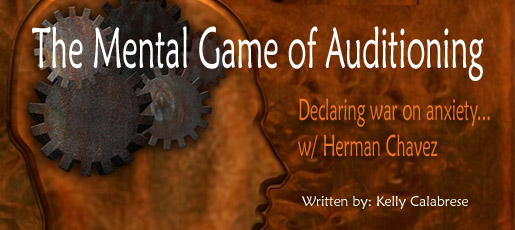
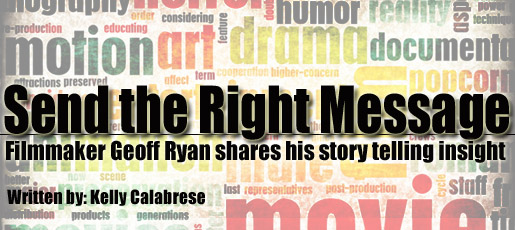
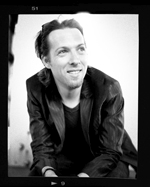 By working on a variety of mediums, Geoff Ryan learned how to take any message and deliver it in the most memorable and impactful form for the audience.
By working on a variety of mediums, Geoff Ryan learned how to take any message and deliver it in the most memorable and impactful form for the audience.
 I met an actor for one of my earlier films, Cult of Eden, through NYCastings, who has done some amazing things. And I worked with him on two other films since then, including Fray. But he constantly gets the same response from agents – that he is an amazing talent yet hasn’t done anything big enough for them to sign him. Now, he has done it all and people ask him how. He did because he had to. It wasn’t about doing a project that was good for his career. It was about working on a project he wanted to be a part of.
I met an actor for one of my earlier films, Cult of Eden, through NYCastings, who has done some amazing things. And I worked with him on two other films since then, including Fray. But he constantly gets the same response from agents – that he is an amazing talent yet hasn’t done anything big enough for them to sign him. Now, he has done it all and people ask him how. He did because he had to. It wasn’t about doing a project that was good for his career. It was about working on a project he wanted to be a part of.
 “Before I was really acting, it was the first thing I got into,” Lauren shares. “I had studied acting when I was younger for 6-7 years. My parents are actors and I went to the High School of Performing Arts in New York City, got accepted for acting and dance and went for dance. And I had a manager and agent when I was fourteen but looked twenty so it was hard and I stopped auditioning.”
“Before I was really acting, it was the first thing I got into,” Lauren shares. “I had studied acting when I was younger for 6-7 years. My parents are actors and I went to the High School of Performing Arts in New York City, got accepted for acting and dance and went for dance. And I had a manager and agent when I was fourteen but looked twenty so it was hard and I stopped auditioning.” 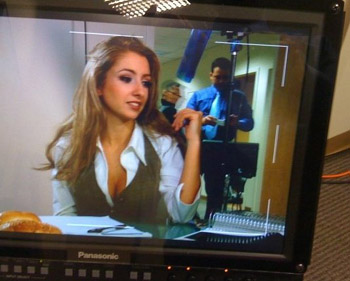 “I know a lot of actors focus on their talent and that is very important, that is one of my main focuses, but I there are three main parts to the business,” Lauren says… “Being a good actor, grooming yourself / knowing your type and then the whole business aspect. A lot of actors aren’t very good business wise and they may not audition that much because they are not thinking about how to promote themselves and submit themselves correctly.”
“I know a lot of actors focus on their talent and that is very important, that is one of my main focuses, but I there are three main parts to the business,” Lauren says… “Being a good actor, grooming yourself / knowing your type and then the whole business aspect. A lot of actors aren’t very good business wise and they may not audition that much because they are not thinking about how to promote themselves and submit themselves correctly.” 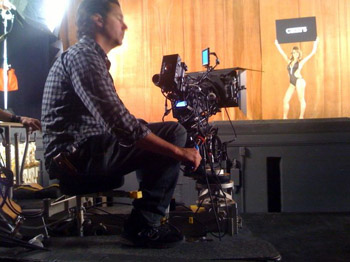
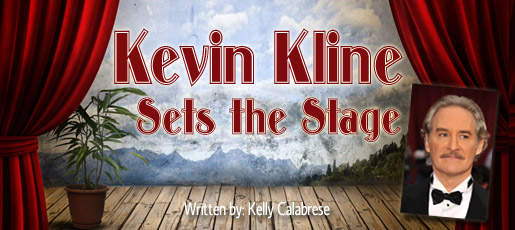
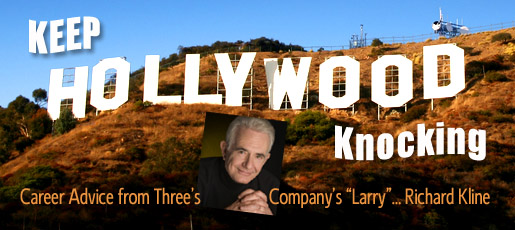
 Today, he plays the role of The Wizard’ on the First National Tour of
Today, he plays the role of The Wizard’ on the First National Tour of  Here are some magic words… passion and focus. I think they go hand in hand. You have to be desperately passionate about wanting to be an artist and very focused on the business side.
Here are some magic words… passion and focus. I think they go hand in hand. You have to be desperately passionate about wanting to be an artist and very focused on the business side. 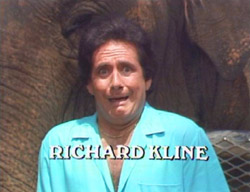 Besides my contract? (Richard laughs)
Besides my contract? (Richard laughs)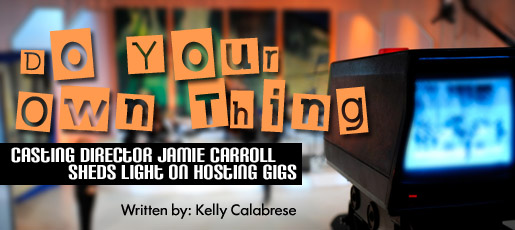
 Someone very aware of themselves and very aware of their strengths.
Someone very aware of themselves and very aware of their strengths. I think people are investing in their homes and with that comes a wave of experts that know how to make a nice home. It may not have been considered an area of expertise fifteen years ago but it is, it’s a valid level of expertise. And there is something about going behind the doors of where people live. There is an amount of voyeurism. It’s all about getting closer nowadays and you can’t get much closer than in a person’s living room.
I think people are investing in their homes and with that comes a wave of experts that know how to make a nice home. It may not have been considered an area of expertise fifteen years ago but it is, it’s a valid level of expertise. And there is something about going behind the doors of where people live. There is an amount of voyeurism. It’s all about getting closer nowadays and you can’t get much closer than in a person’s living room.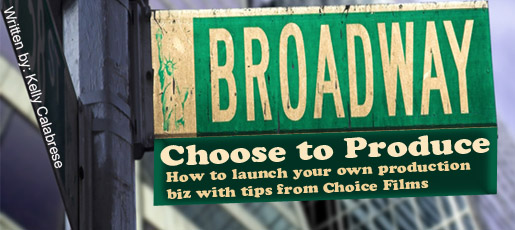
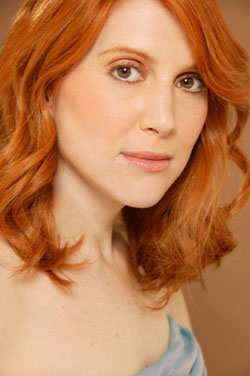 When we formed the company, we wanted to work on things that were fresh and had a contemporary take on things that addressed today without forgetting the past, Summer says. We worked on things that make you look at where we are and have been versus where we are going. We believe that, a little more introspection, without being stagnant, can help us make better choices in our lives.
When we formed the company, we wanted to work on things that were fresh and had a contemporary take on things that addressed today without forgetting the past, Summer says. We worked on things that make you look at where we are and have been versus where we are going. We believe that, a little more introspection, without being stagnant, can help us make better choices in our lives. The better we got, the more we crafted out our point of view as to what we wanted to make and we are always looking back. It is an evolving thing.
The better we got, the more we crafted out our point of view as to what we wanted to make and we are always looking back. It is an evolving thing. It’s a really tough thing to break into this industry, Tony says. It is a grind. You have to have the fortitude to put up with a lot of rejections, which is why I say don’t give up. There are plenty of times you feel like you are hitting your head against the wall but if you really want to do it… keep doing it and it will pay off.
It’s a really tough thing to break into this industry, Tony says. It is a grind. You have to have the fortitude to put up with a lot of rejections, which is why I say don’t give up. There are plenty of times you feel like you are hitting your head against the wall but if you really want to do it… keep doing it and it will pay off.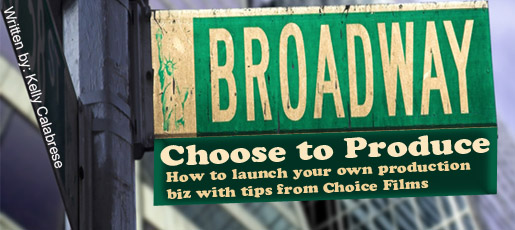
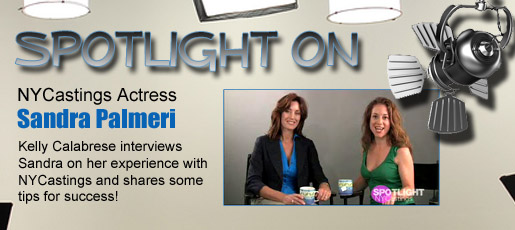
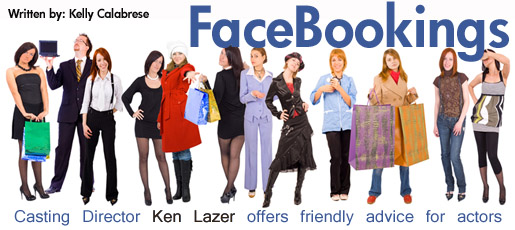
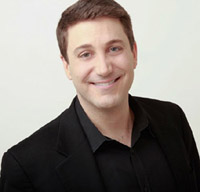 I’ve been doing this for nearly 20 years and have seen too many times the actors that come in feeling nervous and not prepared for an audition. There are a large number of actors in the non-union market who are new to this business and unfortunately do not have any on-camera training. I’ve had actors come in for a casting who don’t know what a slate is. So, I started my Facebook page to give actors some helpful tips and tools that may improve their auditions.
I’ve been doing this for nearly 20 years and have seen too many times the actors that come in feeling nervous and not prepared for an audition. There are a large number of actors in the non-union market who are new to this business and unfortunately do not have any on-camera training. I’ve had actors come in for a casting who don’t know what a slate is. So, I started my Facebook page to give actors some helpful tips and tools that may improve their auditions. Right. This happens with actors that are new to this business and/or don’t have proper on-camera training. Sometimes an actor will shift their weight, blink their eyes a bit too much, lick their dry lips. Those are the most common ones.
Right. This happens with actors that are new to this business and/or don’t have proper on-camera training. Sometimes an actor will shift their weight, blink their eyes a bit too much, lick their dry lips. Those are the most common ones.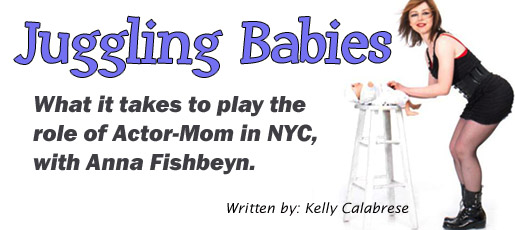
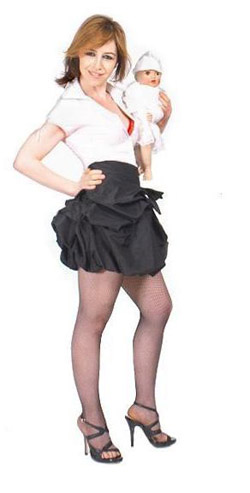 Since graduating, Anna began writing her own novel, The Matrimonial Flirtations of Emma Kaulfield, about a gorgeous, free-spirited, feminist artist, who redefines the traditional rules of dating and puts a feminist spin on the word, “harem.”
Since graduating, Anna began writing her own novel, The Matrimonial Flirtations of Emma Kaulfield, about a gorgeous, free-spirited, feminist artist, who redefines the traditional rules of dating and puts a feminist spin on the word, “harem.”

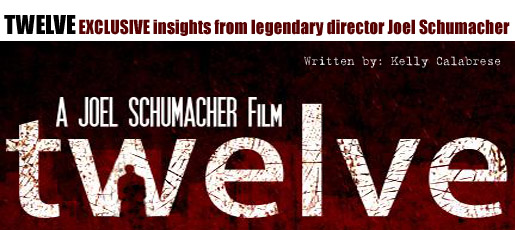
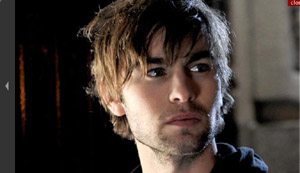 There is a certain adrenalin that happens, when you are directing. And a hyper energy when you have no time and need to focus. But also, I love my job. I wanted to be a director since I was seven and I got my dream, and got it bigger than my dream.
There is a certain adrenalin that happens, when you are directing. And a hyper energy when you have no time and need to focus. But also, I love my job. I wanted to be a director since I was seven and I got my dream, and got it bigger than my dream. 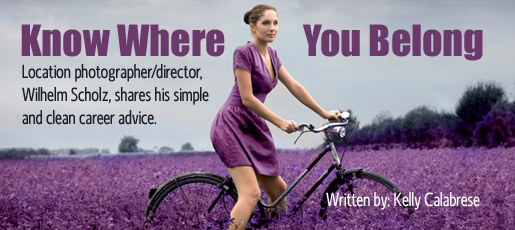
 As a director and photographer, how do the two intertwine, style wise?
As a director and photographer, how do the two intertwine, style wise? For sports, the person has to be good or it looks fake. You can tell that they don’t have the experience. Most actors or models put things on their resumes that say they are experienced runners or tennis players and that is not true. There are certain techniques that need to be exact.
For sports, the person has to be good or it looks fake. You can tell that they don’t have the experience. Most actors or models put things on their resumes that say they are experienced runners or tennis players and that is not true. There are certain techniques that need to be exact. Everyone has a look. That is, unfortunately, a cliché for the market. Some people have the perfect secretary look, or young mom, chef, athlete, cop, whatever. But a lot of people spend time with pictures as characters that will not pay off. And when casting, the bad fits stand out. You react to the negative pictures and it is something actors should avoid.
Everyone has a look. That is, unfortunately, a cliché for the market. Some people have the perfect secretary look, or young mom, chef, athlete, cop, whatever. But a lot of people spend time with pictures as characters that will not pay off. And when casting, the bad fits stand out. You react to the negative pictures and it is something actors should avoid.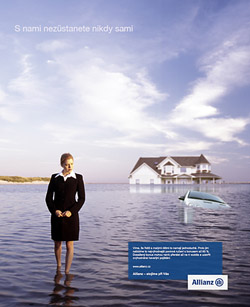 There are certain agencies everyone pulls from; Cunningham (CESD) and Funnyface, the people who have a pool of people one can rely on. The one thing that makes people tentative is when they pull talent that are not serious enough to show up for the casting. So go to places that give you security, whose reputation is something you can count on. Actors should know that if they do not participate in a serious manner, it will affect them and the agency they are behind, especially if it is an internet agency.
There are certain agencies everyone pulls from; Cunningham (CESD) and Funnyface, the people who have a pool of people one can rely on. The one thing that makes people tentative is when they pull talent that are not serious enough to show up for the casting. So go to places that give you security, whose reputation is something you can count on. Actors should know that if they do not participate in a serious manner, it will affect them and the agency they are behind, especially if it is an internet agency. 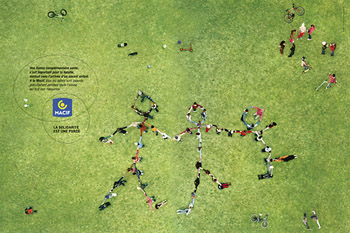 What picture of advice, direction of inspiration, would you give to models/actors?
What picture of advice, direction of inspiration, would you give to models/actors? And, don’t second guess yourself. If you do… what you do… you will always fit somewhere. There will always be a part for you, as long as you are true to who you are.
And, don’t second guess yourself. If you do… what you do… you will always fit somewhere. There will always be a part for you, as long as you are true to who you are.
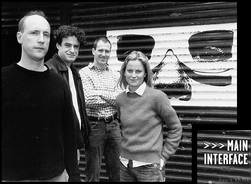 The Del Close Marathon, specifically, began to honor the father of long form improv.
The Del Close Marathon, specifically, began to honor the father of long form improv.  Shows like “Requiem For Drunken Sonic Assault, The Reckoning, To Catch a Predator,” are what that the owners and artistic director most looked forward to watching.
Shows like “Requiem For Drunken Sonic Assault, The Reckoning, To Catch a Predator,” are what that the owners and artistic director most looked forward to watching.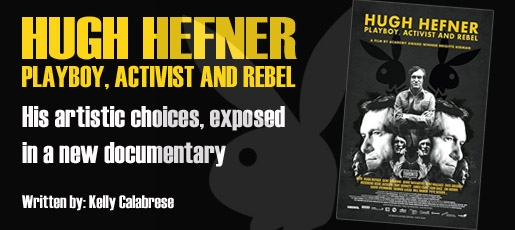
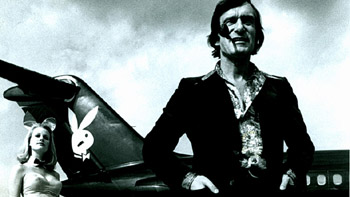 Who I am is an open book with illustrations, Hefner says, yet how someone interprets those illustrations is very much an ink blot or a Rorschach.
Who I am is an open book with illustrations, Hefner says, yet how someone interprets those illustrations is very much an ink blot or a Rorschach.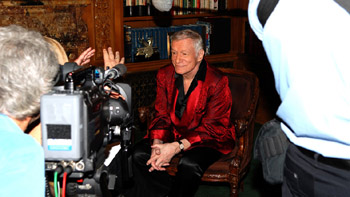 Big thoughts may come easy, yet Hugh Hefner also took action, immediately.
Big thoughts may come easy, yet Hugh Hefner also took action, immediately.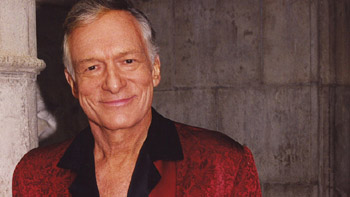 Yet, Hefner didn’t pre-calculate every success. Some began organically, as was the case with his magazine feature called, The Playboy Philosophy. Hefner wrote it for just one issue, because he wanted to make a point about the public’s perception of him.
Yet, Hefner didn’t pre-calculate every success. Some began organically, as was the case with his magazine feature called, The Playboy Philosophy. Hefner wrote it for just one issue, because he wanted to make a point about the public’s perception of him.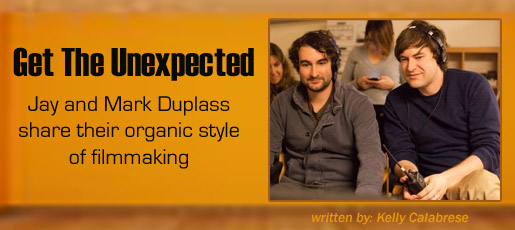
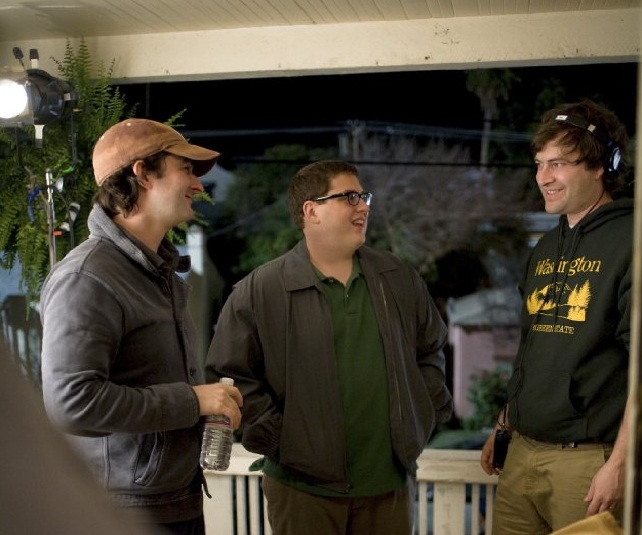 The actors evolve the story and then the Duplass brothers “manage the tone more in editing.”
The actors evolve the story and then the Duplass brothers “manage the tone more in editing.”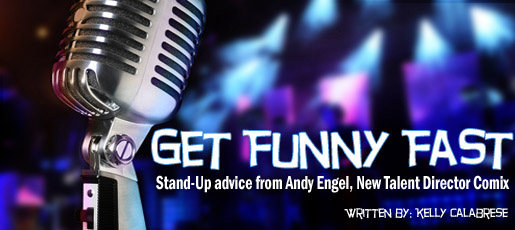
 Since I have been producing for almost 20 years I have a large network of industry friends who often contact me when they want to showcase someone.
Since I have been producing for almost 20 years I have a large network of industry friends who often contact me when they want to showcase someone.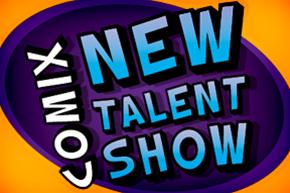 The reason I work for the place I work, is we simply offer the best opportunities for New Talent. We offer comics a free Two camera shoot DVD that is unmatched by any other club in NYC. These DVD’s get people development deals and careers. In addition I do auditions for Letterman, Fallon, Kimmel and Comedy Central. I have also just started giving comics free feedback which I think gives our show and edge over every other New talent shows. To answer your question the quality of the DVD’s varies tremendously some clubs literally use security cameras to give to the comics. Our club was designed by a TV and film studio so our acoustics are state of the art. Some clubs were bars that were converted to clubs so that they can’t compete with us. The DVD’s, The feedback the quality of the sound system are a few very distinct differences.
The reason I work for the place I work, is we simply offer the best opportunities for New Talent. We offer comics a free Two camera shoot DVD that is unmatched by any other club in NYC. These DVD’s get people development deals and careers. In addition I do auditions for Letterman, Fallon, Kimmel and Comedy Central. I have also just started giving comics free feedback which I think gives our show and edge over every other New talent shows. To answer your question the quality of the DVD’s varies tremendously some clubs literally use security cameras to give to the comics. Our club was designed by a TV and film studio so our acoustics are state of the art. Some clubs were bars that were converted to clubs so that they can’t compete with us. The DVD’s, The feedback the quality of the sound system are a few very distinct differences.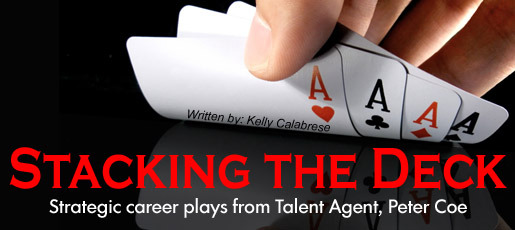
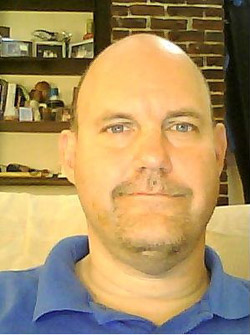
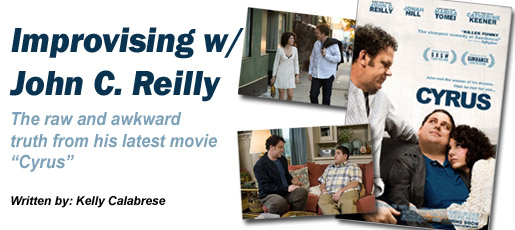
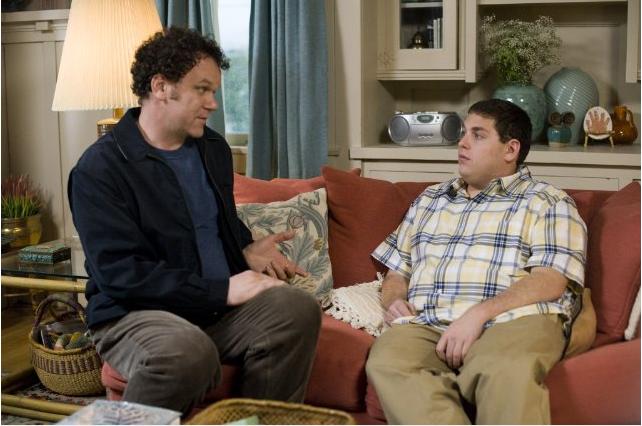 Of course, NYCastings wanted to find out more about the awkward moments!
Of course, NYCastings wanted to find out more about the awkward moments! 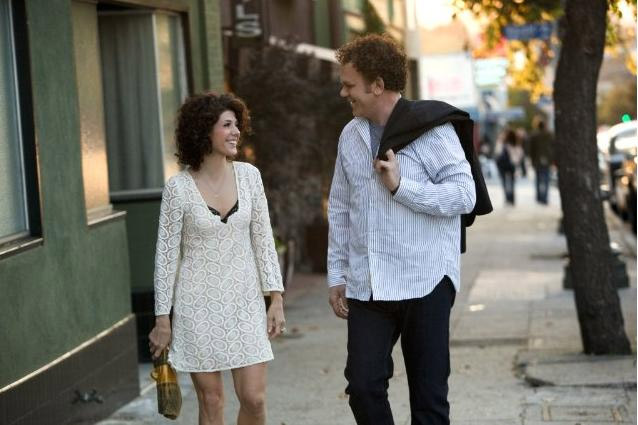 Q: When John meets Molly, their chemistry is immediate – how does chemistry play a role for you as an actor / how important is it?
Q: When John meets Molly, their chemistry is immediate – how does chemistry play a role for you as an actor / how important is it? 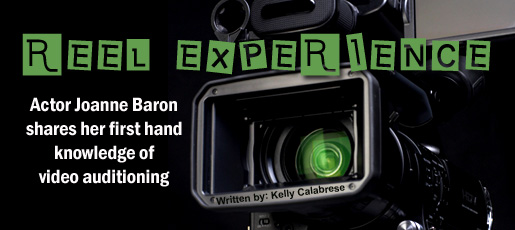
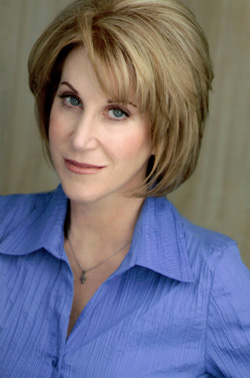 Training teaches you the skill, whether it be in dance, piano or acting, and that skill is something within you that you modulate to a degree when you find yourself in different technical situations.
Training teaches you the skill, whether it be in dance, piano or acting, and that skill is something within you that you modulate to a degree when you find yourself in different technical situations.